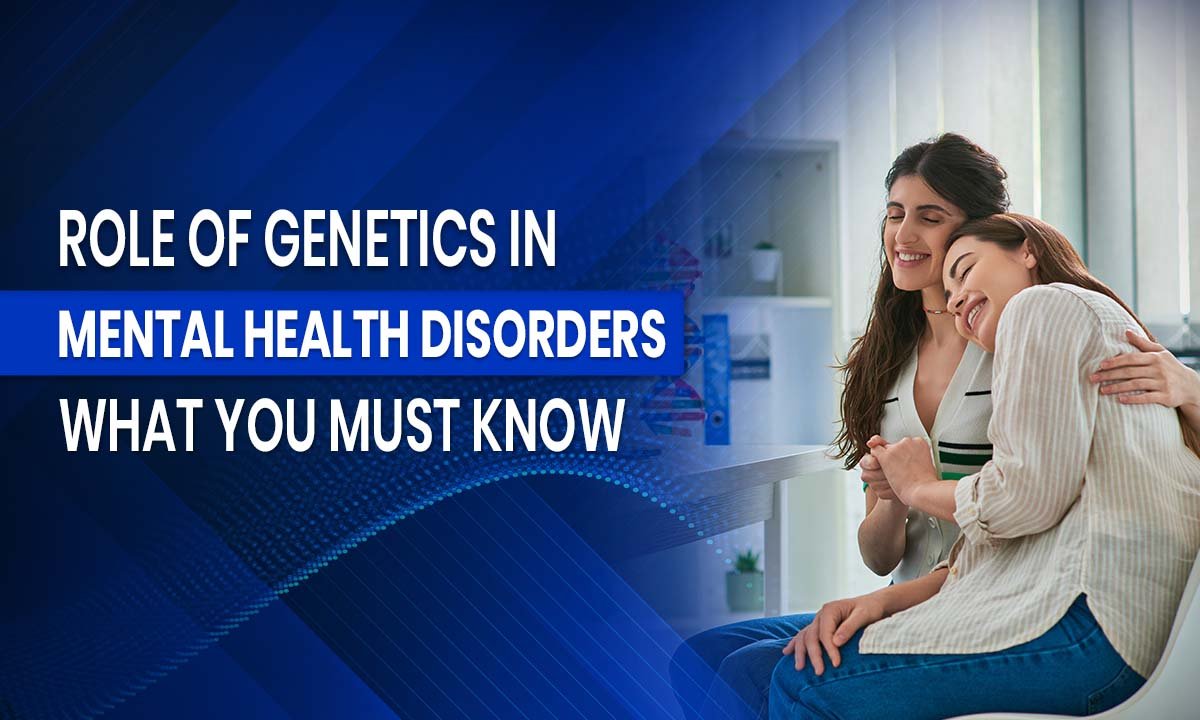
If you’ve ever wondered whether mental health disorders run in families or if you're genetically predisposed to them, you’re not alone. Many people have questions about the role genetics plays in mental health issues.
From mood disorders like depression and bipolar disorder to more severe conditions like schizophrenia, understanding the genetic factors behind these conditions is vital. In this article, we’ll explore how genetic predisposition, heritability, and gene-environment interaction impact mental health risks. If you’ve ever asked, “Am I at risk?” or “Can mental illness be inherited?”, keep reading. We’re here to break it down for you.
Before we dive into the science, remember this: if you or someone you know is struggling with addiction or mental health challenges, it’s important to seek professional support. At Confidential Rehab, we offer high-quality mental health services and addiction treatment. Whether you’re facing mood disorders, addiction, or other mental health issues, don't hesitate to reach out. Now, let’s explore how genetics affects mental health!
Genetic Predisposition to Mental Health Disorders
Genetic predisposition means that your likelihood of developing a mental health disorder is influenced by your genetic makeup. If mental health conditions like bipolar disorder, schizophrenia, or mood disorders run in your family, you might have a higher risk.
Heritability is another key term in this conversation. It refers to how much of the variation in a trait, like a mental health condition, is explained by genetic factors. However, here’s the important part: genetic predisposition doesn’t mean you’re guaranteed to develop a disorder. Your environment and lifestyle play a crucial role, too.
Understanding how genetics and environmental factors work together is essential for anyone dealing with mental health concerns. A family history of mental illness can increase your risk, but lifestyle changes, support, and early intervention can significantly reduce your chances of developing these conditions.
The Science of Heritability and Mental Illness Risk
In psychiatric genetics, heritability plays a central role. Essentially, heritability tells us how much of the risk for developing a condition is inherited. For example, schizophrenia has an estimated heritability of around 80%, meaning most of the risk comes from genetics. Bipolar disorder also shows a strong genetic link, with studies indicating that individuals with a family history are more likely to develop it.
However, this doesn’t mean your genes are your fate. Even if you have a genetic predisposition, lifestyle factors such as stress management, diet, exercise, and access to mental health care can all influence your risk.
This is where gene-environment interaction comes in. It’s not just about your genes; it’s about how they interact with your environment that determines your mental health outcome.
Understanding Gene-Environment Interaction
Imagine you have a genetic predisposition to mood disorders. If you're exposed to chronic stress, trauma, or a toxic environment, that interaction between your genes and the environment could trigger the onset of a disorder.
Think of it like planting a seed. If the environment is right (stressful, unstable), the seed (your genetic risk) will grow into a mental health disorder.
The gene-environment interaction can unfold in many ways. For example, schizophrenia might develop faster in someone with a genetic predisposition who experiences severe stress. On the other hand, someone with the same genetic risk but a supportive environment might never experience the condition.
What About Genetic Testing for Mental Health?
Thanks to advances in psychiatric genetics, genetic testing is now available as a tool to understand your risk for mental illness. Genetic tests can offer insights into your predisposition to conditions like schizophrenia, bipolar disorder, or depression. While these tests aren’t perfect predictors, knowing your genetic risk can empower you to take proactive steps to manage your mental health.
However, it’s important to remember that genetic testing should not replace traditional mental health assessments. It’s just one piece of the puzzle. If you’re curious about genetic testing, it’s a good idea to consult a psychiatric genetics expert to learn more about the process.
How Confidential Rehab Can Support Your Mental Health Journey
If you’re concerned about your mental health or struggling with addiction, remember, you don’t have to face it alone. At Confidential Rehab, we offer a range of mental health services designed to meet your specific needs. Whether you’re dealing with mood disorders, bipolar disorder, schizophrenia, or addiction, our dedicated team is here to guide you toward recovery.
With the right treatment, early intervention, and support, you can take control of your mental health. Don’t wait for things to get worse reach out now. The best time to start your healing journey is today. Contact Confidential Rehab to speak with a professional who can help you through the process.
Patient Experiences
- Ravi Sharma – I struggled with depression for years until I found Confidential Rehab. Their holistic approach changed my life.
- Priya Verma – The team at Confidential Rehab helped me through a tough time. I’m now in control of my mental health and addiction.
- Anil Kapoor – Thanks to Confidential Rehab, I was able to turn my life around and overcome anxiety that had been holding me back.
- Deepika Sood – I can finally breathe again, thanks to the incredible support from Confidential Rehab. I’m now on a path to mental wellness.
Stimulant Addiction Treatment Centre in Gurgaon
Internet Addiction Treatment Centre in Gurgaon
Shopping Addiction Treatment Centre in Gurgaon
Pornography Addiction Treatment Centre in Gurgaon





